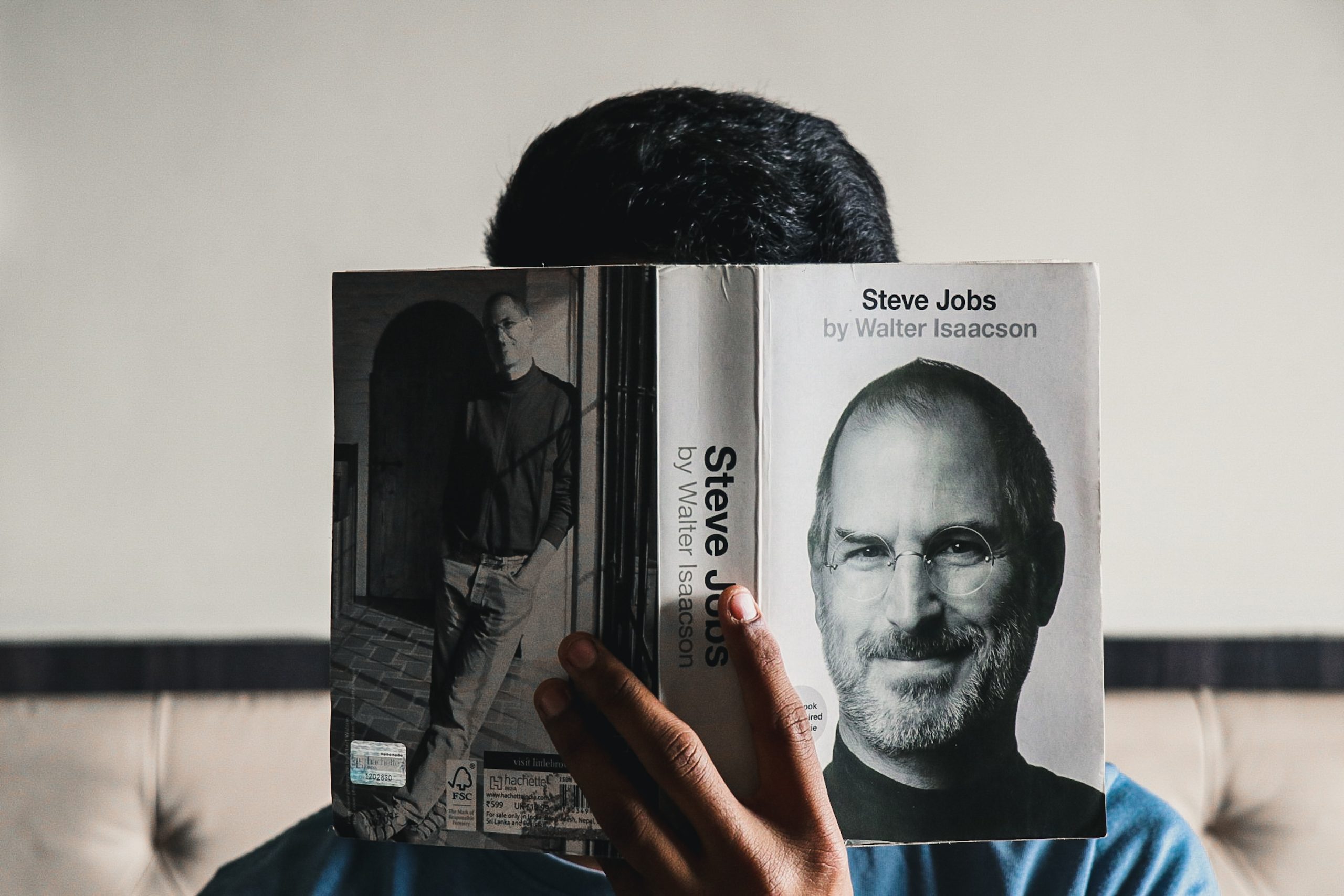Steve Jobs is a name that evokes inspiration, innovation and success. He was the co-founder of Apple Inc., the man behind iconic devices like the iPod, iPhone and iPad, and an influential tech visionary who transformed entire industries. But even great men have regrets. In this blog post, we will delve into Steve Jobs’ biggest regret – the one decision that nearly derailed his most remarkable success story. Join us on this journey through Apple’s history to discover how Jobs overcame challenges, battled fierce competitors and ultimately achieved greatness despite his missteps along the way.
When Steve Jobs met Apple’s then CEO John Sculley
It was a fateful day in 1983 when Steve Jobs met John Sculley, who at the time was the CEO of PepsiCo. Jobs believed that he needed someone with marketing and business experience to help him lead Apple into its next phase of growth.
Jobs famously asked Sculley, “Do you want to sell sugar water for the rest of your life or do you want to come with me and change the world?” The charismatic entrepreneur successfully convinced Sculley to leave his comfortable job at PepsiCo and join him on this revolutionary journey.
However, as we’ll see later in this post, their relationship would eventually sour. But at that momentous meeting between two industry titans, it seemed like nothing could stop them from achieving greatness together. And indeed they did achieve great things – but not without some bumps along the way.
The decision to create the Macintosh computer
The Macintosh computer is one of the most iconic products in Apple’s history, but its creation wasn’t without controversy. Steve Jobs had a vision for a personal computer that was easy to use and accessible to everyone, but not everyone at Apple agreed with his approach.
Jobs recruited a team of talented engineers who shared his vision for the Macintosh project. He pushed them hard, demanding perfection in every aspect of the design and functionality. The result was a groundbreaking product that changed the way people interacted with computers.
But it came at a cost. The development process was long and difficult, with numerous setbacks along the way. At one point, Jobs even threatened to fire anyone who didn’t believe in the project as much as he did.
In hindsight, some have criticized Jobs’ management style during this time as overly aggressive and confrontational. But there’s no denying that his passion for creating something truly innovative drove him and his team forward towards success.
The Macintosh may not have been an immediate commercial success upon release, but it laid the foundation for all future Apple products and cemented Jobs’ legacy as a visionary leader in technology innovation.
The making of the iPod
The making of the iPod was a turning point for Apple and its co-founder, Steve Jobs. It all started when Jobs challenged his team to create a device that could store 1,000 songs in your pocket – something that had never been done before.
The challenge seemed impossible at the time, but the team worked tirelessly to bring Jobs’ vision to life. They faced many obstacles along the way, including limited storage capacity and battery life issues. But they persevered, experimenting with different technologies until they found one that worked.
The result was the first-generation iPod, which launched in 2001 and revolutionized the music industry. The sleek design and intuitive interface made it easy for users to carry their entire music library with them wherever they went.
Despite some initial skepticism from critics who doubted its success due to its high price tag, the iPod quickly became a cultural phenomenon. Its popularity spurred sales of Apple’s computers as well as iTunes software where digital downloads were sold.
In later years, new iterations of the iPod were introduced with additional features such as video playback capability and touch screen interfaces – paving way for other innovative tech devices like iPhone and iPad.
While Steve Jobs may have regretted some decisions he made during his career at Apple; creating iconic products like iPod would become an undeniable highlight of his remarkable success story.
The iPhone and iPad
The iPhone and iPad revolutionized the tech industry. Steve Jobs believed that smartphones would eventually become a necessity for everyone, and he was not wrong. When he unveiled the first iPhone in 2007, it changed everything we knew about cell phones.
The sleek design, large touchscreen display, and user-friendly interface made it an instant hit with consumers around the world. The App Store also allowed developers to create new applications specifically for the iPhone.
In 2010 Apple launched another game-changing product: the iPad. It was marketed as something between a smartphone and laptop computer – ideal for browsing online content or streaming media on-the-go.
Despite initial skepticism from critics who called it just a “big iPod Touch”, sales skyrocketed thanks to its portability and ease of use.
Today both devices have become ubiquitous in our daily lives, with millions of people using them every day for work, entertainment, communication or simply staying connected with others around the world.
The legacy left by these two products is unquestionable; they defined a whole new era of mobile computing while leading other brands such as Samsung or Google to innovate too.
Jobs’ return to Apple in 1997
After being ousted from Apple in 1985, Steve Jobs returned to the company as CEO in 1997. The tech giant was struggling at that time and on the verge of bankruptcy. Under Jobs’ leadership, Apple underwent a transformation that would change the course of technology forever.
Jobs’ first move upon his return was to simplify Apple’s product line by eliminating several unprofitable products. He then shifted focus towards creating innovative new designs such as colorful iMacs and laptops with clamshell casings.
In addition to revamping Apple’s design strategy, Jobs also forged partnerships with other companies such as Microsoft, which invested $150 million into the struggling company. This helped boost investor confidence and gave Apple a much-needed injection of cash.
Under Jobs’ leadership, Apple launched groundbreaking products such as the iPod, iPhone and iPad which not only revolutionized personal computing but changed how people consume media and interact with technology.
Jobs proved himself as an inspirational leader who could turn around a failing business through innovation and strategic partnerships. His return to Apple marked a turning point for both the company and the entire tech industry.
The battles with AT&T, Microsoft and Google
When it comes to the tech industry, competition is fierce. And Steve Jobs certainly knew that better than anyone. Throughout his career at Apple, he faced off against some of the biggest players in the game.
One such battle was with AT&T. Apple’s initial deal with them for exclusive iPhone distribution in the US caused a lot of controversy and backlash from consumers who were locked into contracts with other carriers. However, Jobs stood by his decision and eventually expanded iPhone availability to other carriers.
Another major competitor was Microsoft. The two companies had a long-standing rivalry dating back to the early days of personal computing. But Jobs didn’t let that stop him from pushing forward with innovative products like the iPod and later, the iPad.
And then there was Google – a new player on the scene but one that quickly became a formidable opponent thanks to its Android operating system which rivaled iOS. This led to legal battles over patents and intellectual property rights, something Jobs took very seriously.
Despite these challenges, Jobs continued to lead Apple towards success even as he battled pancreatic cancer behind closed doors. It’s clear that his vision and determination have left an indelible mark on both Apple and the tech industry as a whole.
The death of Jobs and the impact on Apple
The passing of Steve Jobs in 2011 was a huge loss not only for his family and loved ones but also for the entire tech industry. He left behind an incredible legacy, having revolutionized multiple industries with his innovative ideas and products.
However, some people wondered if Apple could survive without its visionary leader. In the years since Jobs’ death, Apple has continued to thrive under CEO Tim Cook’s leadership. The company has released new iterations of their popular products like iPhones, iPads, and Macs while also diversifying into other areas such as wearables and streaming services.
Even though it’s been almost a decade since Steve Jobs passed away, his influence is still felt at Apple today. His obsession with design, user experience and attention to detail continue to shape the company’s culture even after all these years.
In conclusion (just kidding), Steve Job’s biggest regret may have nearly derailed his most remarkable success story but it didn’t stop him from innovating or pushing boundaries in the world of technology. His vision helped put computers on every desk around the world; he revolutionized how we listen to music through iPods and changed smartphones forever with iPhones. Despite facing numerous setbacks throughout his career journey – including being fired from Apple – he never gave up on creating something that would change people’s lives forever.
Steve Jobs was truly one-of-a-kind: a true icon who will always be remembered as one of history’s greatest entrepreneurs!










